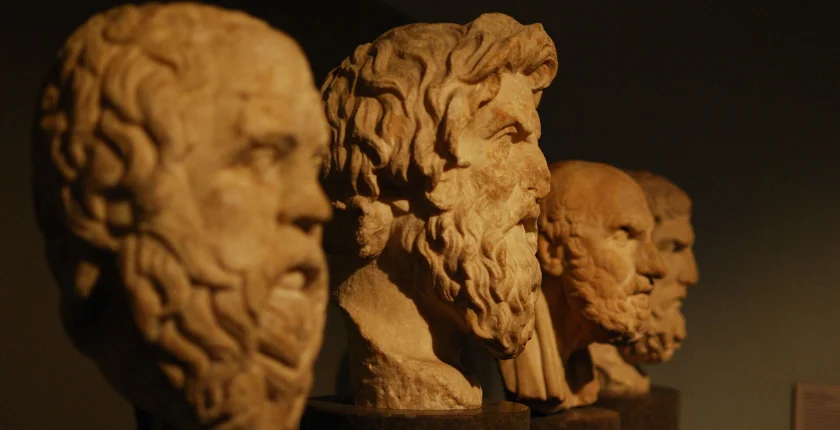Table of Contents
Autodidacts, sometimes known as self-educated or self-taught people, are folks who select to forge their particular educational direction in place of pursuing traditional education. Autodidacts exhibit highbrow interest, self-motivation, and a love of getting to know that drives them to search for knowledge and capabilities through impartial examination. While autodidacts may lack formal credentials, their self-directed learning allows them to gain expertise and make original contributions across many fields.
The Nature of AutoDidacticism
The period “autodidact” comes from the Greek words “automobile” which means self, and “didact” which means trainer. Unlike college students who rely upon schools and instructors to manual their education, autodidacts take manipulate in their learning. They identify subjects that interest them, set their curriculum, and direct how, when, and where their education takes place.
Autodidactic learning can take many forms. Some Famous Autodidact are voracious readers who absorb knowledge from books. Others use online courses, educational podcasts, documentaries, and more. Hands-on learning, interviews with experts, and museum visits also aid self-directed education. Mentors may provide guidance, but the autodidact directs the learning process.
Self-education requires discipline, time management, and learning strategies. Autodidacts must know how to gain access to educational materials, gauge their progress, and overcome obstacles in learning. Self-reflection helps autodidacts identify knowledge gaps and customize their studies accordingly.
Historical and Modern Autodidacts
Auto didacticism has a long, rich history across the world. In ancient Greece, philosopher Socrates proudly characterized himself as “self-taught.” Other eminent historical Famous Autodidacts include mathematician Leonardo Fibonacci, American statesman Benjamin Franklin, and African-American abolitionist Frederick Douglass.
Many impactful thinkers, inventors, and creators in modern times either skipped higher education entirely or eschewed formal training in their groundbreaking work. College dropout Bill Gates taught himself advanced programming to develop Microsoft. Professor Barry Marshall was dismissed by the medical establishment for his theory that bacteria caused stomach ulcers – which he proved correct by self-experimentation, winning a Nobel prize.

Some prominent modern Famous Autodidact include:
- Entrepreneur Steve Jobs dropped out of Reed College but continued auditing classes of his choosing.
- Bestselling author Maya Angelou educated herself via an extensive reading list after leaving high school.
- Inspirational speaker Tony Robbins overcame a troubled childhood by learning effective communication techniques from books and mentors.
- Celebrity chef Gordon Ramsay, trained himself in French cuisine by working uncompensated in Paris restaurants after his injury ended his soccer career.
- Cosmetologist Vidal Sassoon built a hair styling empire after reading library books on hair design.
- Conservationist Jane Goodall, whose self-driven observing of chimpanzees revolutionized primatology though she lacked formal zoology degrees.
Advantages of Being an Autodidact
Pursuing self-education has many potential benefits:
Freedom to Learn Anywhere
Autodidacts can learn in any environment, not just confined classrooms. They manage the location, timing, and pace of studying.
Customized Curriculum
Autodidacts choose subjects aligned with their interests and dreams rather than obligatory curricula. They can delve deeper into topics of passion.
Real-World Skills
Since Famous Autodidacts direct their mastering, they can be aware of gaining practical expertise for careers or pastimes in preference to summary instructional research.
Cost Savings
The cash price of self-training is frequently some distance less than formal education. Famous Autodidacts also avoid fees related to campus living.
Networking Opportunities
Like-minded Famous Autodidacts connect through online forums, clubs, and events to share knowledge. Local experts often mentor promising self-learners.

Challenges of Being an Autodidact
However, self-directed learning also comes with some difficulties:
Lack of Structure
Without syllabi, tests, and deadlines, beginner autodidacts may struggle to stay motivated and organized. Establishing a routine is crucial.
No Credentials
Autodidacts may find it difficult to get jobs or other opportunities without formal degrees and credentials, regardless of actual ability.
Social Isolation
Solo learning means missing out on campus social life. Autodidacts must be proactive about finding intellectual peers.
Gaps in Knowledge
One person can’t teach themselves everything. Autodidacts may have subject weaknesses or knowledge holes.
Lack of Guidance
Autodidacts lack professor expertise guiding their education. Bad learning habits can develop without constructive feedback.

Tips for Aspiring Autodidacts
For those considering directing their education, some tips include:
- Start small – Don’t crush yourself. Begin mastering subjects of innate interest before increasing your curriculum.
- Find a mentor – Locate specialists inclined to offer occasional steerage. Stay open to positive complaints.
- Join a community – Look for clubs, boards, and networking events to interact with fellow autodidacts for assistance and proposals.
- Use numerous assets – Access diverse studying materials – books, podcasts, online courses, documentaries, and arms-on exercises.
- Make a schedule – Create and persist with a weekly routine for reading to imitate college shape.
- Test yourself – Take exercise quizzes, do projects, and teach topics aloud to make certain you are absorbing material correctly.
- Diversify – Don’t simply examine information. Develop carried-out capabilities, artistic expression, and bodily abilities too. More Positive Good Morning Blessings Prayers.

Famous Autodidacts Provide Inspiration
The accomplishments of famed self-taught people throughout records prove the capability for self-directed getting to know. Looking to such autodidacts for inspiration can motivate those seeking an alternative educational path.
A few examples of famous autodidacts and their impacts:
- Michael Faraday – The legendary scientist who pioneered research on electricity and magnetism came from a poor family and had only a basic education. He received no formal scientific training but taught himself via voracious reading and experimentation.
- Frank Lloyd Wright – One of America’s greatest architects had no architecture degrees. He developed his visionary building style via apprenticeships and independent study. Many of Wright’s designs broke away from convention.
- Charles Dickens – The celebrated Victorian author left school at the age of 15 to work. But he dedicated himself to self-education by reading voraciously at the British Museum. The vivid characters and settings Dickens imagined have entertained countless readers.
- George Washington Carver – Denied formal college admission due to racial discrimination, Carver gained scientific expertise as an agricultural chemist and botanist solely through self-directed learning. He devised innovative crop rotation methods and discovered hundreds of uses for peanuts.
- Henrietta Swan Leavitt – A pioneer in astronomy, Leavitt possessed no formal degrees in the field. But her self-guided work cataloging the brightnesses of variable stars enabled her to discover the means to measure the vast scale of the universe.

Autodidacticism on the Rise
In the Internet age with limitless educational content available online, self-directed learning is becoming more normalized. A growing number of students patch together knowledge from diverse sources rather than following rigid curricula. Even at elite universities, enterprising students increasingly forge their paths by picking professors and designing cross-disciplinary studies tailored to their needs.
In Business Many employers also now value demonstrable skills over degrees. Autodidacts who can showcase their experience-driven expertise often have an advantage in the modern economy over those with formal credentials but little real-world savvy. Overall, the future looks bright for self-motivated individuals charting their educational course. There is a rich tradition of autodidacts making original, meaningful contributions to human knowledge.
FAQs
What percentage of people are autodidacts?
There is no firm data, but it’s estimated about 10% of people pursue self-education rather than traditional schooling to some degree, with a rising trend of autodidacticism.
What skills are most crucial for an autodidact?
Key abilities for effective self-directed mastering encompass time management, willpower, goal setting, know-how synthesis, self-mirrored photo, and crucial questioning.
What are the first-class assets for an autodidact?
Top resources include public libraries, museums, documentaries, online courses and tutorials, podcasts, books, mentorships, hands-on practice, and networking with other autodidacts.



